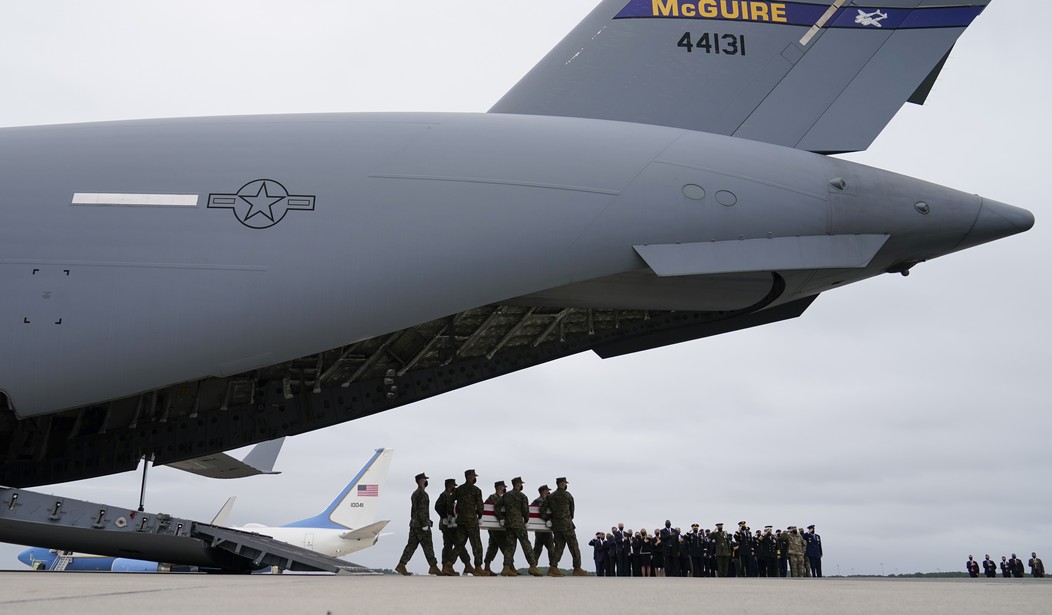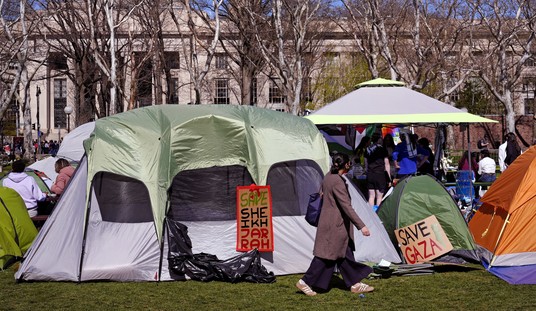On Sunday, it was reported that Iranian-backed militants launched a drone strike in Jordan that killed three U.S. service members and injured about two dozen more. The attack represents a significant escalation in hostilities between the United States and Iran.
The attack has elicited speculation about how the Biden administration will respond to Iran’s aggression. Some have suggested a more diplomatic approach, while others speculated that the response will be military in nature.
RedState’s streiff described the current discussion over the matter.
Since that attack happened, Joe Biden has come under considerable political pressure from key members of the GOP to do something. Our bases have been attacked at least 158 times since the Israel-Hamas War started on October 7. Until today, the number of wounded stood at over 70, the only fatality being an American contractor.
There are several avenues that President Biden could take in response to Iran’s attack, each with their own set of possible ramifications. Regardless of which path the administration chooses to take, it is clear that the situation in the Middle East is set to take a significant turn.
The first and least aggressive option would be for the White House to issue a strong diplomatic condemnation of the Iranian regime’s actions. The president could accompany the denunciation with increased sanctions on Tehran.
This approach might align with Biden’s overall approach to Iran, which has been less than aggressive, to say the least. It would be a way to avoid a direct military confrontation with the Islamic Republic that could balloon into a larger conflict. However, this reaction might be seen as a sign that America’s resolve is not as strong as it has been in the past. It could embolden Iran’s regime, who might see this as a sign of weakness and a green light to continue its escalation because it may not fear consequences.
The more aggressive option would be a targeted military response against positions occupied by Iranian-backed militias. It could involve airstrikes or other types of precision attacks aimed at destroying the facilities and infrastructure that these militias use.
A stronger response would signal that the United States will react harshly if its service members are harmed and could possibly deter future attacks. Iran might be more hesitant to continue its attacks if it knows it will be hit hard in response.
However, a military response could risk even further escalation, which could lead to a broader conflict in the region. It could even go so far as to lead to an all-out war with Iran in which more troops could lose their lives.
It is also worth noting that, short of a major strike on Iranian soil, a military response might not do enough damage to make a difference when it comes to deterring further Iranian aggression. Streiff also pointed out:
Enough time has elapsed after the attack that there is little danger to critical Iranian equipment or personnel. This has echoes of the first major package of airstrikes directed at the Houthis, where they were given about 12 hours' warning of the attack.
Lastly, the Biden administration could take a wider strategic shift in U.S. policy in the Middle East. It could include a complete reevaluation of the military presence in the region, forming new alliances, or possibly pivoting on the nuclear deal.
The White House might consider reducing America’s military footprint in certain regions while strengthening it in others. It could also seek to draw down the number of soldiers in the Middle East altogether while relying on America’s allies to contain Iran’s influence and combat terrorism.
However, such a comprehensive approach would be a long-term undertaking fraught with the complexities of navigating the geopolitical situation. Moreover, it might not be enough to stop Iranian aggression against the United States.
It is also possible that the White House could pursue aspects of each of these options. The U.S. could launch a series of strikes that cause at least some damage while also reconsidering its military presence in the region. Either way, this is a complicated situation, and given the Biden administration’s handling of these matters so far, there isn’t much reason to hope for an effective solution.












